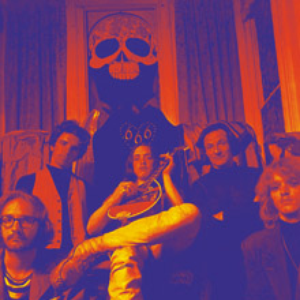

-
- 494
- plays
-
- 185
- listners
-
- 494
- top track count
The story of The Magick Powerhouse of Oz begins in the 1960's with a then young musician named Bobby Beausoleil and his psychedelic chamber music group called The Orkustra. Avant-garde filmmaker Kenneth Anger chanced upon a performance of The Orkustra at the legendary San Francisco happening known as The Invisible Circus. Impressed more with Beausoleil's magnetic stage presence than the music itself, he asked the young musician to play the title role in his next planned film, Lucifer Rising . Beausoleil agreed, as long as his band could perform the music for the film. Throwing himself deep into the project, he ended up alienating his other band members, who left. Undaunted, Beausoleil formed a new band, The Magick Powerhouse of Oz. Unfortunately, after the first live performance of the new band, Beausoleil and Anger had a falling out. Anger moved to England, while Beausoleil drifted down to southern California, where he met a young man named Charles Manson. Although Beausoleil was only involved on the periphery of Manson's circle, he did get involved with some of the biker gangs that frequented the Spahn Ranch where Manson and his group hung out, and ended up being involved in the murder of a double-crossing drug dealer. After his arrest, and while Beausoleil awaited trial, Manson and his cult committed their now infamous helter skelter murders. Linked to Manson's group at his trial, Beausoleil was given the maximum sentence. The Magic Powerhouse of Oz, with their original recordings for the Lucifer Rising soundtrack from 1967, display a different music altogether from the soundtrack Beausoleil would eventually produce. This is much rougher, and doesn't display the electronic experimentation that would form the backbone of the eventual soundtrack. Still, it's a fascinating listen; a great, big, loud stew of rock and experimental jazz. Chaotic, almost orchestral style drumming propels 60's electric guitar jamming while horns and a flute punch their way through the mix. Again, the avant-jazz, Sun Ra influence can be heard as the band stretches out, exploring the possibilities. This is a true and unique time capsule; a glimpse into the wild experimentation that was going on in the Summer of Love; a glorious and somewhat dark celebration of sound, freed from the constraints of rock, classical, and jazz, yet incorporating all three. Read more on Last.fm. User-contributed text is available under the Creative Commons By-SA License; additional terms may apply.